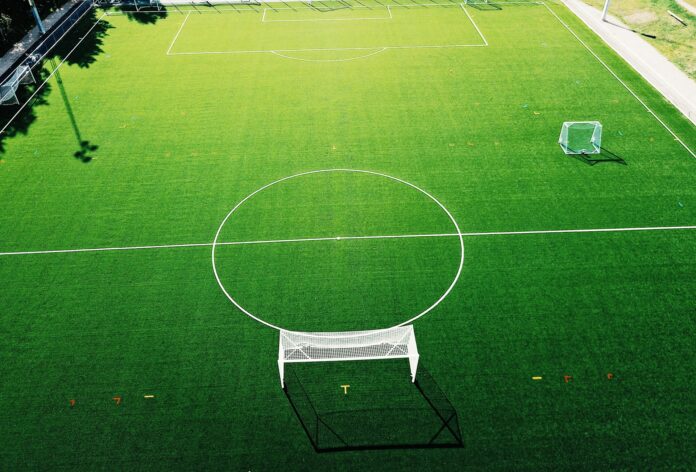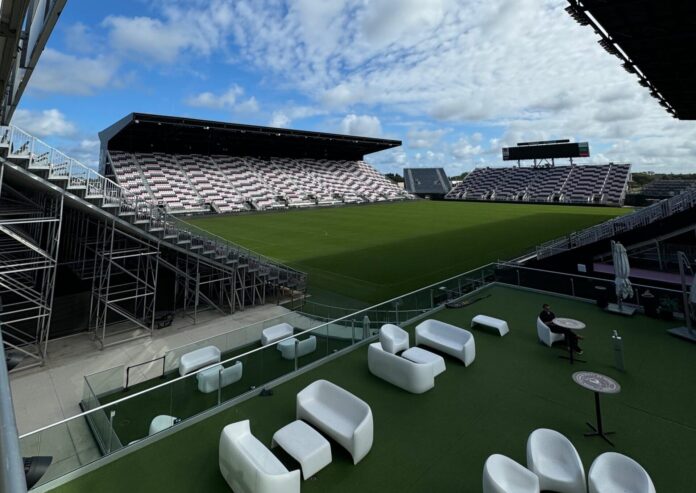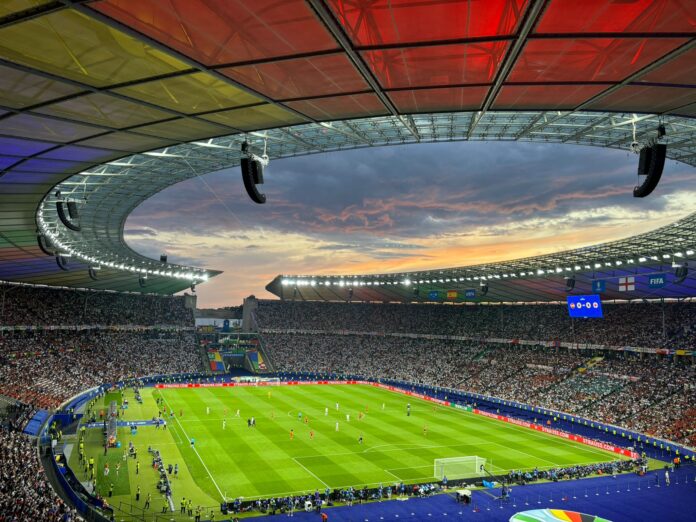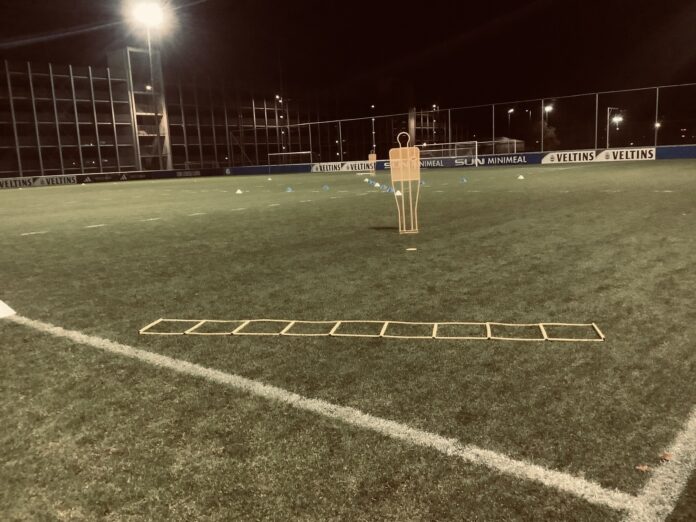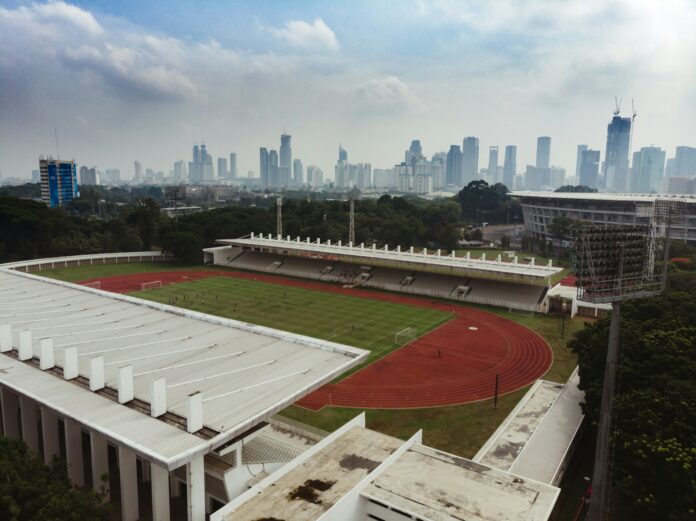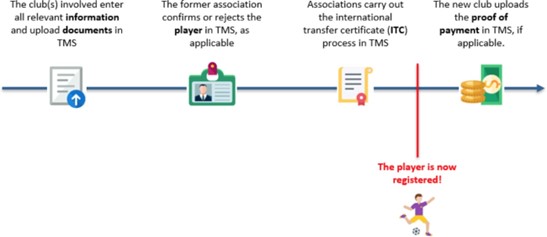Pendahuluan
Dalam dunia sepak bola, di mana transaksi bernilai jutaan poundsterling dan negosiasi dengan taruhannya tinggi menjadi hal yang biasa, peran agen sepak bola sangatlah krusial. Agen yang mengelola kontrak dan transfer pemain juga sering kali diminta untuk memberikan dukungan dalam hal-hal seperti bimbingan pasca-karier, perencanaan keuangan, pengembangan pola pikir, dan nasihat hukum. Mengingat kompleksitas tanggung jawab ini, muncul sebuah pertanyaan yang relevan: apakah agen sepak bola seharusnya mendapatkan pendidikan formal? Blog ini akan membahas mengapa pendidikan sangat penting bagi agen sepak bola dan bagaimana calon agen dapat mempersiapkan diri dengan pengetahuan serta keterampilan yang diperlukan untuk sukses dalam profesi ini.
Mengapa Agen Sepak Bola Harus Mendapatkan Pendidikan
Peran agen sepak bola telah berkembang pesat seiring berjalannya waktu, yang kini tidak hanya sebatas menjembatani kesepakatan antara pemain dan klub. Dalam ekosistem sepak bola yang semakin kompleks saat ini, agen bertanggung jawab atas berbagai aspek terkait karier pemain, termasuk negosiasi kontrak, perencanaan keuangan, masalah hukum, hingga pengembangan pribadi. Perubahan ini menjadikan pendidikan bagi agen sangat penting, tidak hanya untuk melayani klien mereka secara efektif, tetapi juga untuk menjaga dan meningkatkan standar profesional industri secara keseluruhan.
Industri sepak bola saat ini merupakan usaha bernilai miliaran poundsterling, di mana keputusan yang diambil dapat memiliki dampak jangka panjang bagi pemain, klub, dan olahraga itu sendiri. Taruhannya sangat tinggi, dan ekspektasi yang diberikan kepada agen sepak bola pun sangat besar. Seorang agen yang kurang memiliki pemahaman mendalam tentang seluk-beluk industri ini mungkin akan kesulitan untuk menavigasi kompleksitas yang ada, yang berpotensi mengarah pada hasil yang kurang optimal bagi klien mereka. Di sisi lain, agen yang terdidik dan memiliki dasar yang kuat dalam bidang-bidang utama seperti hukum olahraga, manajemen keuangan, dan strategi negosiasi, lebih siap untuk memberikan nasihat yang komprehensif dan terinformasi.
Hal ini pada gilirannya meningkatkan kualitas layanan yang diberikan kepada klien dan mengangkat standar profesional dalam industri ini. Pada akhirnya, Anda tidak perlu menjadi ahli dalam setiap aspek yang mungkin dibutuhkan oleh klien pemain atau klub Anda, namun semakin banyak pengetahuan yang Anda miliki, semakin baik layanan yang dapat Anda berikan.
Salah satu area yang paling krusial di mana pendidikan memiliki peran penting adalah dalam pemahaman dan penerapan hukum olahraga. Kerangka hukum yang mengatur sepak bola sangat kompleks, mencakup hukum kontrak, regulasi ketenagakerjaan, hak kekayaan intelektual, dan bahkan hukum internasional dalam kasus transfer antarnegara. Seorang agen yang memiliki pemahaman mendalam tentang prinsip-prinsip hukum ini dapat memastikan bahwa kontrak yang dinegosiasikan memberikan manfaat maksimal bagi pemain, sekaligus melindungi dari potensi masalah hukum seperti sengketa atau pelanggaran kontrak. Keahlian ini tidak hanya bermanfaat untuk memperoleh syarat yang menguntungkan, tetapi juga untuk melindungi karier pemain dalam jangka panjang, memastikan hak-hak mereka dihormati dan mereka tidak terpapar pada risiko yang tidak perlu.
Pemahaman keuangan adalah aspek penting lainnya di mana pendidikan dapat memberikan dampak signifikan. Pemain sepak bola sering kali menghasilkan pendapatan yang besar, namun tanpa manajemen keuangan yang tepat, pendapatan tersebut dapat cepat habis. Seorang agen yang terdidik, dengan pengetahuan dalam bidang-bidang seperti perpajakan, strategi investasi, dan manajemen kekayaan, dapat memberikan panduan yang sangat berharga kepada pemain, membantu mereka membangun dan mempertahankan keamanan finansial baik selama maupun setelah karier mereka. Memahami implikasi pajak dari kontrak, endorsement, dan investasi sangat penting, karena kesalahan dalam area ini dapat berujung pada sanksi finansial yang berat atau bahkan masalah hukum. Dengan memberi nasihat kepada pemain tentang cara menyusun keuangan mereka secara efisien, seorang agen dapat berkontribusi pada stabilitas dan kesuksesan jangka panjang klien mereka.
Aspek komersial dari sepak bola juga telah berkembang pesat, dengan pemain yang kini dipandang sebagai merek global. Hal ini mengharuskan agen untuk memiliki pemahaman yang tajam tentang pemasaran, hubungan masyarakat, dan manajemen merek. Seorang agen yang terdidik dapat membantu pemain memaksimalkan potensi penghasilan mereka di luar lapangan melalui kesepakatan endorsement, sponsor, dan peluang komersial lainnya. Ini tidak hanya meningkatkan pendapatan pemain, tetapi juga meningkatkan citra publik mereka, menciptakan warisan yang bertahan lama setelah masa bermain mereka berakhir. Pengetahuan di bidang ini memungkinkan agen untuk memposisikan klien mereka secara strategis di pasar, memastikan mereka memanfaatkan setiap peluang yang ada.
Membandingkan persyaratan pendidikan untuk agen sepak bola dengan olahraga lainnya, seperti sepak bola Amerika, semakin menegaskan pentingnya pendidikan formal. Di Amerika Serikat, Asosiasi Pemain National Football League (NFLPA) mengharuskan agen untuk memiliki gelar sarjana dan pascasarjana, seperti gelar master atau hukum, sebelum mereka dapat disertifikasi. Selain itu, calon agen harus
menyelesaikan seminar dua hari dan lulus ujian tertulis yang ketat. Proses ini memastikan bahwa agen yang memasuki bidang ini memiliki latar belakang akademis yang kuat dan pemahaman mendalam tentang industri, yang pada akhirnya akan menguntungkan klien yang mereka wakili.
Saat ini, kita hanya memiliki Ujian Agen FIFA dan CPD tahunan yang wajib dipatuhi oleh agen. Namun, mungkin penerapan standar pendidikan serupa dengan yang diterapkan di NFL dalam dunia sepak bola dapat memberikan dampak transformatif bagi industri ini. Dengan mengharuskan agen untuk mencapai tingkat pendidikan tertentu, profesi ini dapat ditingkatkan ke tingkat profesionalisme dan integritas yang lebih tinggi. Hal ini tidak hanya akan meningkatkan kualitas perwakilan yang tersedia untuk pemain, tetapi juga berkontribusi pada pengembangan dan reputasi olahraga secara keseluruhan. Dengan agen yang lebih terdidik, industri ini kemungkinan akan melihat lebih sedikit konflik, kontrak yang lebih adil, serta proses negosiasi yang lebih transparan dan adil.
Cara Mendidik Diri Sendiri Sebagai Agen Sepak Bola
Menjadi agen sepak bola yang sukses membutuhkan lebih dari sekadar hasrat terhadap permainan; hal ini memerlukan pemahaman mendalam tentang berbagai aspek industri olahraga, mulai dari seluk-beluk hukum hingga manajemen keuangan dan lainnya. Bagi mereka yang bercita-cita untuk unggul di bidang yang kompetitif ini, memperoleh pendidikan yang tepat adalah hal yang sangat penting. Ada beberapa jalur yang dapat diambil untuk mencapainya, masing-masing menawarkan kesempatan unik untuk membangun pengetahuan dan keterampilan yang diperlukan untuk berkembang sebagai agen sepak bola.
Salah satu jalur yang paling komprehensif dan tradisional untuk memperoleh pendidikan yang diperlukan adalah melalui program gelar universitas dalam manajemen olahraga atau bisnis olahraga. Program gelar ini dirancang untuk memberikan pemahaman yang luas tentang industri olahraga, membekali mahasiswa dengan pengetahuan teoretis dan keterampilan praktis yang dibutuhkan untuk menavigasi dunia sepak bola yang kompleks. Mata kuliah yang biasanya ditawarkan meliputi topik-topik penting seperti hukum olahraga, pemasaran, manajemen keuangan, manajemen acara, dan etika, antara lain. Pendekatan multidisipliner ini memastikan bahwa lulusan siap untuk menghadapi tantangan beragam yang dihadapi oleh seorang agen sepak bola.
Lembaga pendidikan seperti Global Institute of Sport (GIS) dikenal menawarkan gelar spesial yang disesuaikan dengan industri sepak bola. Mereka menawarkan berbagai program sarjana dan pascasarjana yang fokus pada sisi bisnis sepak bola. Tidak hanya di dunia agen, tetapi juga dalam bidang jurnalistik sepak bola, pelatihan eksekutif, hingga kepelatihan. Program-program ini dirancang dengan memperhatikan kebutuhan industri, menggabungkan kekakuan akademis dengan penerapan di dunia nyata.
Mahasiswa tidak hanya mendapat manfaat dari pengajaran berkualitas tinggi, tetapi juga dari kesempatan untuk berinteraksi dengan profesional industri melalui magang, kuliah tamu, dan acara jejaring. Pengalaman praktis ini sangat berharga, karena memungkinkan mahasiswa untuk menerapkan apa yang telah mereka pelajari dalam lingkungan dunia nyata, membangun kepercayaan diri dan jaringan profesional mereka.
Selain meningkatkan pengetahuan, gelar universitas juga memberikan kredensial yang dapat membedakan Anda di dunia agen sepak bola yang kompetitif. Seiring dengan profesionalisasi industri ini, memiliki kualifikasi formal dapat menjadi keuntungan besar ketika membangun kredibilitas dengan klien pemain, klub, dan pemangku kepentingan lainnya. Hal ini memberi sinyal kepada orang lain bahwa Anda memiliki dasar yang kuat dalam bidang-bidang kunci dalam industri ini dan bahwa Anda berkomitmen untuk pengembangan profesional Anda.
Selain gelar universitas, ada juga kursus-kursus khusus yang dirancang khusus bagi mereka yang ingin menjadi agen sepak bola. Kursus-kursus ini menawarkan pendidikan yang lebih terfokus, yang mencakup keterampilan dan pengetahuan unik yang diperlukan untuk sukses di bidang ini. Dua di antaranya adalah Diploma “How to Become a Football Agent” dan Sertifikat yang ditawarkan oleh Dr. Erkut Sogut melalui Football Business Academy (FBA). Kami merancang kursus ini untuk mencakup seluruh aspek peran agen, mulai dari negosiasi kontrak dan hubungan klub hingga pemahaman tentang peraturan FIFA dan pengelolaan hubungan media pemain. Bagi mereka yang tertarik untuk menggali lebih dalam bersama Dr. Erkut Sogut, Anda dapat menghubungi platform Sports Agent Academy untuk menanyakan tentang program mentorship 1-1 kami, yang melibatkan sesi mingguan dengan Erkut dan penerapan praktis keterampilan dan pengetahuan di dunia agen.
Keunggulan dari kursus khusus semacam ini adalah bahwa mereka disesuaikan dengan kebutuhan calon agen sepak bola. Kursus-kursus ini memberikan pengetahuan mendalam yang melampaui apa yang biasanya dicakup dalam program manajemen olahraga yang lebih umum. Sebagai contoh, mahasiswa dapat terlibat dalam studi kasus negosiasi kontrak dunia nyata, mempelajari cara mengatasi skenario kompleks yang sering dihadapi oleh agen. Kursus-kursus ini juga sering mencakup komponen praktis, seperti simulasi negosiasi dan lokakarya, di mana mahasiswa dapat mengasah keterampilan mereka dalam lingkungan yang terkendali. Pendekatan langsung ini memastikan bahwa peserta tidak hanya memahami teori di balik peran agen, tetapi juga memiliki keterampilan praktis untuk menerapkan teori tersebut secara efektif.
Bagi mereka yang mungkin sudah bekerja di industri atau ingin mengkhususkan diri lebih lanjut, kursus virtual format pendek menawarkan cara yang fleksibel dan terfokus untuk meningkatkan keahlian di bidang tertentu. Kursus-kursus ini sangat berguna untuk memperoleh pengetahuan dalam area spesifik yang penting bagi peran agen sepak bola, seperti hukum olahraga, perpajakan olahraga, perawatan pemain, psikologi dan pola pikir, serta keterampilan negosiasi. Karena kursus-kursus ini sering diselenggarakan secara daring, mereka memberikan fleksibilitas untuk belajar sesuai kecepatan Anda sendiri, menjadikannya pilihan ideal bagi mereka yang perlu menyeimbangkan studi dengan komitmen profesional lainnya.
Kursus hukum olahraga, misalnya, dapat memberikan pemahaman mendalam tentang kerangka hukum yang mengatur sepak bola, mulai dari regulasi transfer hingga hukum kontrak dan hak kekayaan intelektual. Memahami aspek hukum ini sangat penting bagi agen, karena memungkinkan mereka untuk melindungi kepentingan klien dan menavigasi lanskap hukum yang sering kali rumit dalam sepak bola profesional.
Demikian pula, kursus tentang perpajakan olahraga, seperti yang kami lakukan dengan International Sports Tax Association (ISTA), dapat membekali agen dengan pengetahuan yang diperlukan untuk memberi nasihat kepada klien tentang perencanaan keuangan yang efisien dari sisi pajak, memastikan pemain memaksimalkan penghasilan mereka sambil mematuhi kewajiban hukum.
Kursus tentang Perawatan Pemain dan Psikologi juga semakin penting dalam lanskap sepak bola modern. Bidang ini fokus pada pengembangan holistik pemain, tidak hanya mengenai performa di lapangan tetapi juga kesejahteraan mental dan emosional mereka. Seorang agen yang terdidik di bidang ini dapat memberikan dukungan yang lebih komprehensif kepada klien, membantu mereka mengelola tekanan sepak bola profesional dan mencapai keseimbangan kerja-hidup yang lebih baik.
Akhirnya, keterampilan negosiasi adalah inti dari peran seorang agen, dan kursus khusus dalam bidang ini dapat secara signifikan meningkatkan efektivitas agen.
Kursus-kursus ini biasanya mencakup berbagai strategi dan teknik negosiasi, mengajarkan peserta bagaimana mengamankan kesepakatan terbaik untuk klien mereka. Baik itu untuk negosiasi kontrak pemain, kesepakatan endorsement, atau penyelesaian sengketa, keterampilan negosiasi yang kuat sangat penting untuk kesuksesan sebagai agen sepak bola, sehingga sangat penting untuk mempelajarinya!
Kesimpulan
Dalam dunia sepak bola yang penuh dengan tekanan tinggi, di mana agen memiliki peran yang sangat penting dalam membentuk karier dan masa depan pemain, pendidikan bukan hanya sebuah aset, tetapi juga suatu keharusan. Kompleksitas sepak bola modern menuntut agen yang menguasai berbagai aspek hukum, keuangan, komersial, dan lainnya, yang memungkinkan mereka untuk memberikan dukungan yang komprehensif dan berdasarkan informasi yang tepat kepada klien pemain mereka. Baik melalui gelar universitas, kursus spesial, maupun program jangka pendek yang terfokus, calon agen sepak bola memiliki banyak jalur untuk memperoleh pengetahuan dan keterampilan esensial yang diperlukan untuk unggul. Dengan berinvestasi dalam pendidikan mereka, kami percaya bahwa agen tidak hanya dapat meningkatkan karier mereka sendiri, tetapi juga berkontribusi pada profesionalisme dan integritas industri sepak bola secara keseluruhan, yang pada akhirnya akan memastikan hasil yang lebih baik bagi pemain, klub, dan olahraga itu sendiri.


